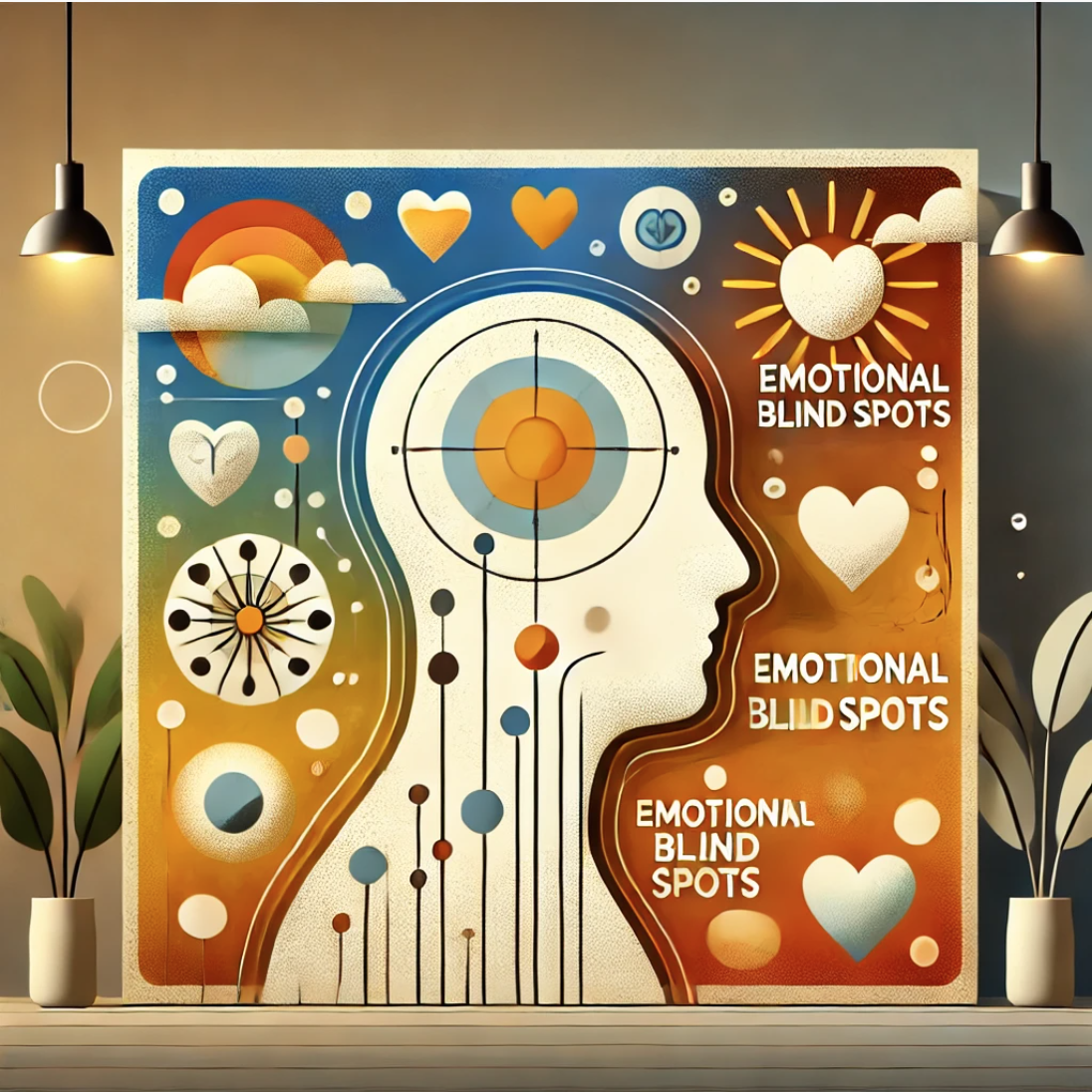Uncovering Your Emotional Blind Spots
--> How can you uncover your emotional blind spots? And why?
What emotions do you navigate with ease?
Which ones do you tend to avoid?
Are there certain emotions that trigger automatic responses in you, whether it's anger, defensiveness, or self-blame?
And in this context, how strong is your emotional agility, meaning your awareness of the emotions you’re experiencing, your ability to articulate them, and your capacity to make responsible, healthy choices?
We all have emotional blind spots—ways in which we process or express emotions that are obvious and impactful to those around us, yet not fully within our own awareness.
Gaining insights into these blind spots can be both exciting and enlightening. But it can also be humbling and, at times, uncomfortable. No matter how it feels, uncovering these insights is invaluable for improving your friendships, leadership, and relationships at home.
If you’re ready to take on the challenge of shining a light on your emotional blind spots, here’s an activity to try:
1. Choose 5 people who know you well and represent different roles in your life (leader, manager, co-worker, forum mate, spouse, parent, sibling, friend, etc.). Select only those you trust to have your best interests at heart and who will be honest with you.
2. Explain that you’re conducting a short exercise to uncover your emotional blind spots and ask if they’d be willing to answer two questions. Acknowledge that it might feel a bit awkward (because we don’t usually ask questions like this), but assure them that you will remain non-defensive and open to their feedback.
3. Ask them to list three emotions they believe you express or handle well. If helpful, provide a list or a wheel of emotions. Request examples of situations where these emotions were present and relevant.
4. Next, ask them to list three emotions they think you struggle to handle. Maybe you avoid these emotions, lash out when feeling them, become rigid, or deflect with humor. Again, request situational examples.
5. Thank them sincerely for their honest feedback and their willingness to share!
It takes courage to have conversations like this. But if you’re committed to showing up as a better, kinder, and more self-aware person, then this kind of courage is well worth cultivating.
I’d love to know what insights you gained if you go through this activity!
